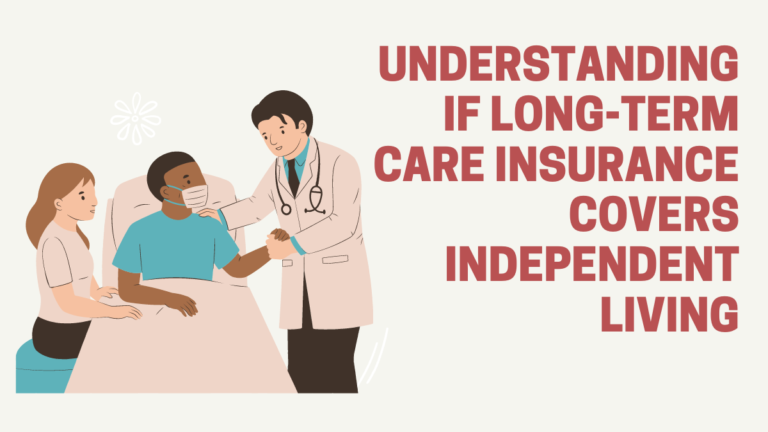Understanding Respite Care: Does Insurance Cover this Essential Service?

Are you exhausted? Burnt out from the daily caregiving duties that leave little time for yourself? We get it. And we have a solution – respite care. This essential service provides much-needed relief to caregivers, giving them a chance to rest and recharge. But here’s the tricky part: does insurance cover this lifeline?
In this blog post, we delve into the world of respite care and unravel the mysteries surrounding insurance coverage. Prepare to discover how you can tap into this invaluable support system without breaking the bank!
Table of Contents
What is respite care?
Respite care is a vital service that allows caregivers, unable to continue providing regular care for a loved one, time away to rest and catch up on their own. A number of factors can affect whether or not respite-care is covered by insurance, so it’s important to know what those are before making a decision.
Generally speaking, respite-care is only considered eligible for coverage if it falls within the definition of essential services under the Affordable Care Act. Essential services are those that are necessary for the health and well-being of an individual who is incapable of taking care of themselves due to a physical or mental impairment. This includes things like in-home assistance with daily activities, companionship, medication management and other basic needs like bathing and dressing.

In order for respite-care to be considered an essential service, it must also meet certain requirements. Most importantly, it must be offered at no cost to the person receiving it and be offered intermittently rather than continuously. These rules vary slightly from state to state, so it’s important to ask your provider about coverage before scheduling any visits.
If you think that your insurance may cover respite-care, it’s important to speak with your provider as soon as possible so that you can get the most benefit from your policy.
What services are provided in respite care?
Respite-care is often seen as an amenity, and not as an essential service by many people. However, according to the National Commission for Disability Standards (NCDS), respite services are “a critical component of inclusive communities.” Inclusive communities strive to provide residents with a sense of independence and inclusion, which is necessary for successful aging.
While there are many types of respite services, all share certain common features. First and foremost, respite care helps relieve family members who have caretaking responsibilities from having to take time off from work or stay home from their own personal obligations. It also allows seniors and people with disabilities to participate in community activities and enjoy routines that they may have missed out on in their earlier years.
In order to be eligible for respite-care, you must meet certain eligibility criteria. Most importantly, you must be able to take advantage of regular rest and recuperation periods in order to restore your energy and stamina. Additionally, you should be able to reside in a comfortable environment that provides access to necessary amenities such as food, clothing, and libraries. The service must be affordable for both the provider and the recipient.
Some insurance companies offer benefits specifically designed for recipients of respite-care. If you’re covered under your policy, please consult with your insurance representative before arranging any long-term commitments regarding respite-care services.
Who provides respite care?
In the United States, respite-care is often seen as a necessary service provided by families and friends to allow someone with a disability to rest and recuperate. However, many people do not realize that respite-care is often covered by insurance policies, depending on the type of disability.
In general, most insurance companies will cover respite care for people with disabilities who require short-term breaks in order to fully recover. Some common types of disabilities that typically require respite care include dementia, Alzheimer’s disease, Parkinson’s disease, autism Spectrum Disorder (ASD), intellectual disabilities, and chronic cerebral palsy.
There are a number of factors to consider when determining whether or not your insurance company will cover respite care. First and foremost is the duration of the break – shorter breaks may be covered by certain policies while longer breaks may not be.
Additionally, coverage can also depend on the severity of the person’s disability – for example, costs for ASD-related respite would be more expensive than costs for respite given to someone with Alzheimer’s Disease. If you are unsure whether or not your insurance company will cover respite care services, it is advisable to contact them directly.
What are the benefits of receiving respite care?
Respite-care is a form of long-term care that allows individuals or couples to receive help with everyday activities, like bathing and dressing, while also receiving support from caregivers. This type of care is usually provided as part of a continuum of services, which helps people stay as comfortable and engaged in their lives as possible.
There are many benefits to receiving respite care. First, it can help people stay active and engaged in their lives. Second, it can provide relief for caregivers who may be struggling to keep up with an individual’s daily needs on their own.
Third, respite care can give individuals the opportunity to regain mobility and strength after a period of rest or recuperation. And finally, many health insurance companies cover respite care as an essential service for those who need it.
Is insurance coverage for respite care available?
respite care is a critical service for people with chronic medical conditions. It relieves symptoms so that patients can continue to live their life as normal.
There are different types of respite care, but all involve providing short-term relief from the patient’s chronic conditions. For example, if someone has dementia, they may need regular breaks to help them rest and recover from the cognitive symptoms of the disease.
Many people with chronic medical conditions require some form of respite care. In fact, the National Resource Center on Respite Care reports that almost two thirds (64%) of caregivers with a personal care proxy report their loved one needed at least one overnight stay in a residential setting because of limitations related to their physical or mental health condition in the 2010 National Survey on Long Term Care.
This high demand for respite care means that many people could benefit from it, but it’s not always accessible due to insurance coverage or other factors. If you’re wondering if your insurance policy covers respite care, here’s what you need to know:
Most plans offered by major carriers do cover some type of respite services when ordered by a doctor or specialist caring for a loved one with a chronic illness or disability. However, there are some exclusions – usually involving very expensive services – so be sure to ask your insurer about any limitations before requesting services.
If you don’t have health insurance, you might be able to find private coverage for respite care. There are also a number of long-term care insurance companies that offer coverage for respite services, so be sure to check with your carrier to see if this is an option.
Whatever the case may be, it’s important to have access to respite care in case you or a loved one needs it. If you’re unsure whether your insurance policy covers respite care, contact your insurer or consult with a licensed social worker who can help you get the necessary coverage.

Conclusion
Respite care can provide a much-needed break for family caregivers of people with dementia. If you are providing respite care, make sure that you are aware of the services that your insurance may cover. In some cases, insurance companies may pay for helper services and round-the-clock supervision to ensure that the person receiving care remains safe and comfortable.






